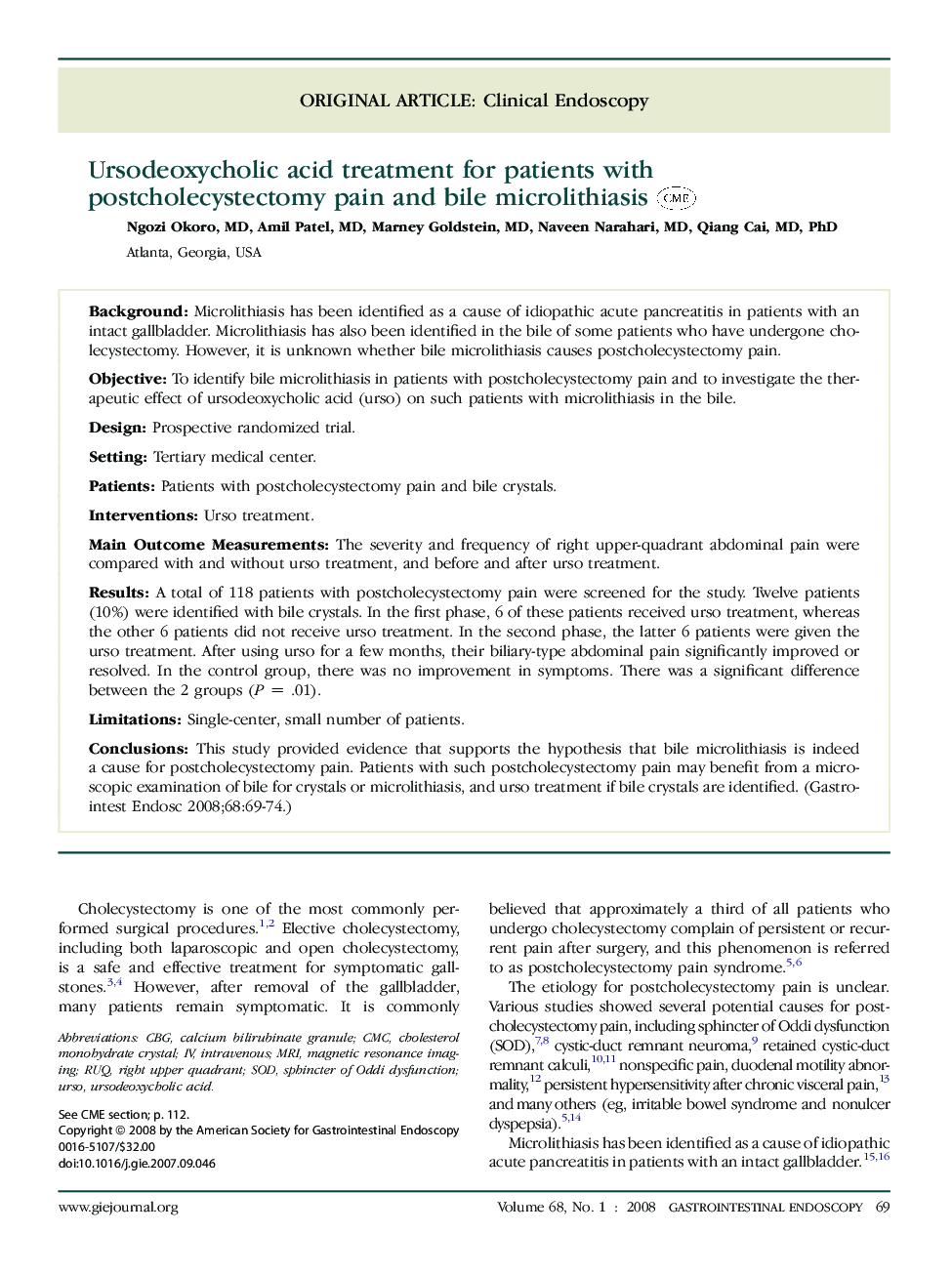| Article ID | Journal | Published Year | Pages | File Type |
|---|---|---|---|---|
| 3307449 | Gastrointestinal Endoscopy | 2008 | 6 Pages |
BackgroundMicrolithiasis has been identified as a cause of idiopathic acute pancreatitis in patients with an intact gallbladder. Microlithiasis has also been identified in the bile of some patients who have undergone cholecystectomy. However, it is unknown whether bile microlithiasis causes postcholecystectomy pain.ObjectiveTo identify bile microlithiasis in patients with postcholecystectomy pain and to investigate the therapeutic effect of ursodeoxycholic acid (urso) on such patients with microlithiasis in the bile.DesignProspective randomized trial.SettingTertiary medical center.PatientsPatients with postcholecystectomy pain and bile crystals.InterventionsUrso treatment.Main Outcome MeasurementsThe severity and frequency of right upper-quadrant abdominal pain were compared with and without urso treatment, and before and after urso treatment.ResultsA total of 118 patients with postcholecystectomy pain were screened for the study. Twelve patients (10%) were identified with bile crystals. In the first phase, 6 of these patients received urso treatment, whereas the other 6 patients did not receive urso treatment. In the second phase, the latter 6 patients were given the urso treatment. After using urso for a few months, their biliary-type abdominal pain significantly improved or resolved. In the control group, there was no improvement in symptoms. There was a significant difference between the 2 groups (P = .01).LimitationsSingle-center, small number of patients.ConclusionsThis study provided evidence that supports the hypothesis that bile microlithiasis is indeed a cause for postcholecystectomy pain. Patients with such postcholecystectomy pain may benefit from a microscopic examination of bile for crystals or microlithiasis, and urso treatment if bile crystals are identified.
